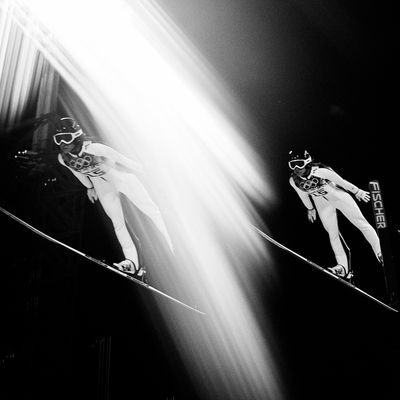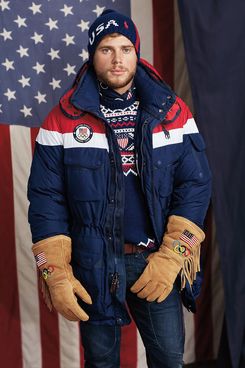
This week, the Winter Olympics, the awkward, wintry stepsibling of the main summer event, kick off in Pyeongchang. Unlike their warm-weather counterparts, which feature more straightforward feats of athleticism that test how high people can jump or how fast they can swim, the Winter Olympics skew toward weirder, more esoteric sports. There’s biathlon and curling, bobsledding and ski jumping, the one where you slide down ice really fast, and the one where you do it backward. Because of this, and perhaps because the Winter Olympics include fewer sports in general, they’re generally seen as the less exciting of the two Olympics. That may well be true, but perhaps because they are the weirder of the two contests, the Winter Olympics are also far more fun for viewers. Here’s why.
1. It’s more fun to watch cold things on TV when you are warm inside.
First of all, there is the comfort of it all. In the Winter Olympics, the athletes are cold, since they’re competing outside in or near the snow, while the viewers, watching the events on TV inside, are warm. This is comforting. You can watch the Nordic Combined, for instance, where everyone races and jumps around on skis over the course of long distances, and admire both the effort of everyone involved and be happy that you yourself and not attempting it.
2. You get to learn about, and then become seriously invested in, sports you would never watch otherwise.
You might know nothing about curling, for instance, but start watching a half hour of it on TV and you’ll suddenly start yelling about how people aren’t sweeping properly. There’s a certain joy in discovering a skill you never knew existed before, discovering a community of people deeply invested in perfecting that skill, and then deciding that you could make much better decisions than they could while judging them from the comfort of your couch. This is true of the Summer Olympics as well, but in winter there are fewer sports and so you can focus more closely on each one of them. Soon, your whole apartment will be obsessed with curling.
3. Figure skating.
Truly the best sport, in that it combines incredible feats of athleticism, over-the-top music, sparkling outfits, and epic tragedy. The athletes, the best people in the world at this sport, fall a lot! They’re pushing themselves to the very limit of what the human body can achieve, while still attempting to look graceful. It’s an absurd amount of pressure to live up to, and whether you’re watching someone nail a routine perfectly, or mess up and then crumble into a shell of their former self while still trying to hold it together on live TV, it’s thrilling to watch.
4. The color commentary is better.
Tara Lipinski and Johnny Weir’s outfits alone make them better than most commentators, not to mention their easy conversational vibe, and the fact that they’re actually experts in what they’re talking about. (Luckily, they’re back again this year.)

5. The outfits are sillier, and therefore better.
No offense to the Summer Olympics, for which the U.S. tends to put its athletes in outfits that say “I have a Tinder account with several photos of myself on a boat,” but the fondness for oversize parkas and mitts (oh my god, the mitts!) in Winter Olympics take things to a whole new level. Consider this year’s Team USA uniform, which looks like what would happen if Mario ate Kirby, who swallowed a chef.
6. The desire to turn the most unforgiving season into a time for competitions expresses something charming about humanity.
A logical species might decide to hibernate during the winter. People, on the other hand, figure it’s a good time to go out and spend a ton of extra calories skiing through moguls. We’re real dumb.
7. The sports tend to have more rules. Rules are fun.
In the marquee Summer Olympics sports like swimming and track-and-field, you have to get from point A to point B as fast as possible. Booooring. In the Winter Olympics it’s often hard to tell who’s in the lead in any given event or why. Sure, skiing is pretty straightforward, but once you start watching the biathlon or curling, the rules become far more arcane, and somehow entrancing. Who decided that skiing and shooting were one sport at the same time? Why am I suddenly so invested in the U.S. team’s slim chances? Anyway, the biathlon starts airing February 10. See you there.





